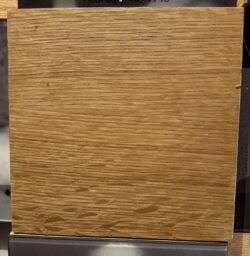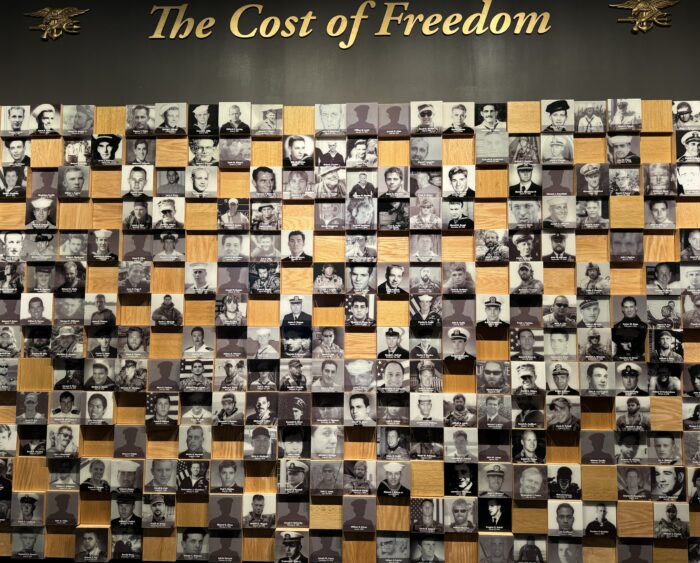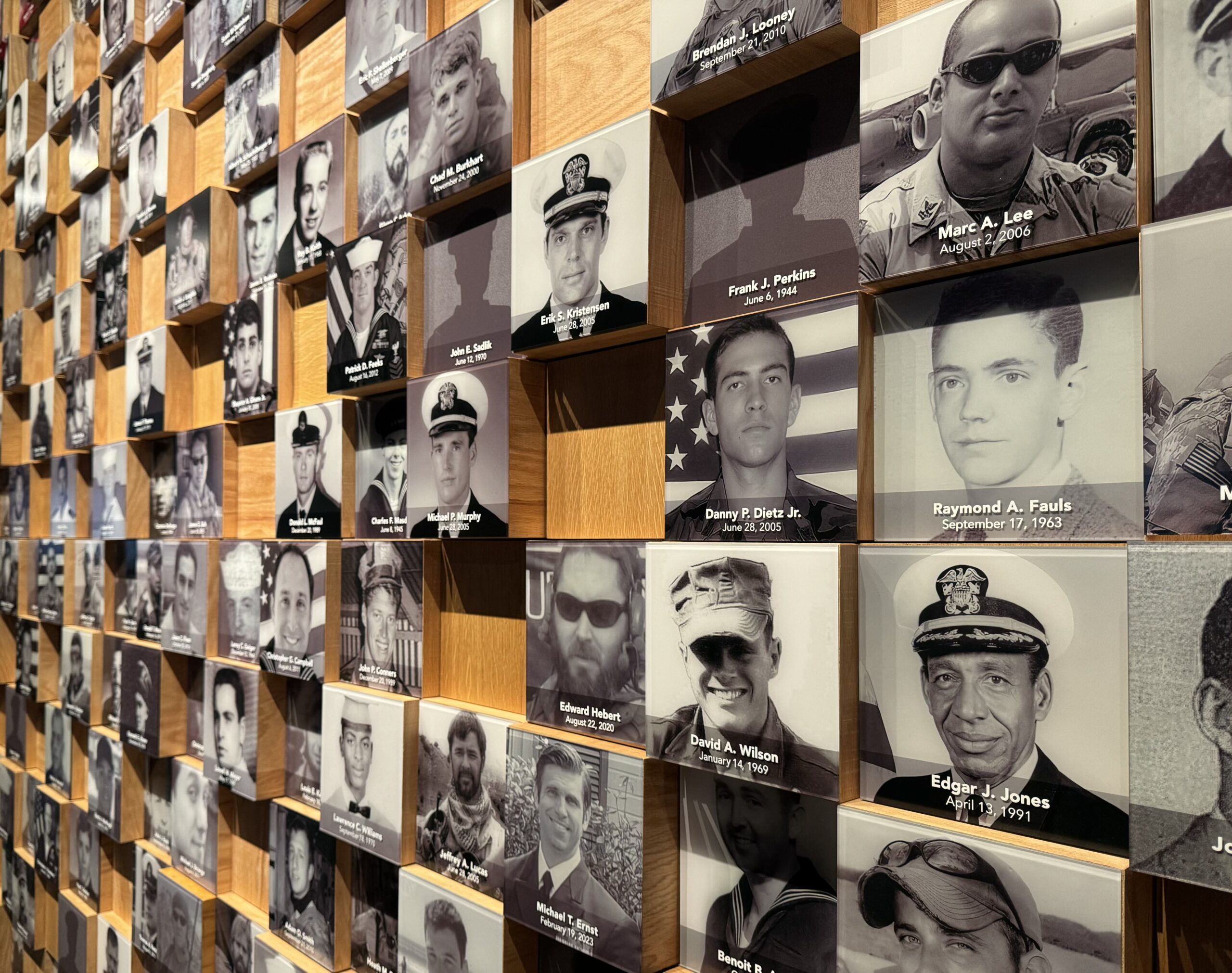The Lt. Michael Murphy Navy SEAL Museum in West Sayville, New York, is a moving tribute to the bravery and sacrifice of Navy SEALs, particularly honoring Lt. Michael Murphy. The museum features exhibits that highlight the rigorous training, valor, and missions of these elite warriors. Central to its design is the “Cost of Freedom” wall, constructed with American-made, hardwood plywood with a soy-based adhesive, symbolizing both respect for the fallen and a commitment to sustainability. The museum seamlessly blends historical reverence with environmentally responsible practices, serving as a beacon of national pride and environmental stewardship.

The driving force behind using American-made, soy-based wood products was to honor the memory of the Navy SEALs in a way that aligned with their service to the nation. This commitment to American craftsmanship and sustainability was evident in the selection of quartered white oak from Columbia Forest Products. The use of PureBond, a soy-based adhesive, in these wood products ensured a non-toxic, formaldehyde-free material, for a space meant to honor heroes.
“The choice of materials for the Lt. Murphy Navy SEAL Museum reflects how U.S. soybeans deliver sustainable solutions,” said United Soybean Board Director Brent Rendel and a soybean, wheat and corn farmer from Oklahoma. “It is an honor to be part of the museum’s respect for service members as well as commitment to American values and environmental stewardship.”

Robin Roberts, the former owner and Vice President of Roberts Plywood, who was deeply involved in the project, emphasized the importance of using American products: “It had to be American wood. Columbia Forest Products and their soy-based PureBond adhesive made this a no-brainer.”
The selection of PureBond was driven by both environmental and health considerations. Formaldehyde, commonly used in wood adhesives, is a known carcinogen and can cause significant health issues, ranging from respiratory problems to cancer. The U.S. Environmental Protection Agency (EPA) identifies formaldehyde as a harmful chemical found in many building materials, including composite wood products.
The use of PureBond not only ensures a healthier environment but also underscores the museum’s commitment to sustainability. Columbia Forest Products practices responsible forestry and seeks to minimize waste and maximize efficiency in its sourcing and manufacturing. This approach aligns perfectly with the museum’s dedication to honoring the Navy SEALs in an environmentally responsible manner.
Roberts explained the rigorous standards met by Columbia Forest Products: “PureBond technology, which Columbia has been using for nearly 20 years, ensures high-quality, durable products. This quality was crucial for the Lt. Murphy Navy SEAL Museum, ensuring the wood panels are both beautiful and long-lasting.”
By incorporating soy-based wood products, the museum sets a standard for future projects, combining historical reverence with modern sustainability practices. This initiative not only honors the memory of the Navy SEALs but also demonstrates the possibilities of sustainable building practices, paving the way for more environmentally conscious construction in the years to come.

